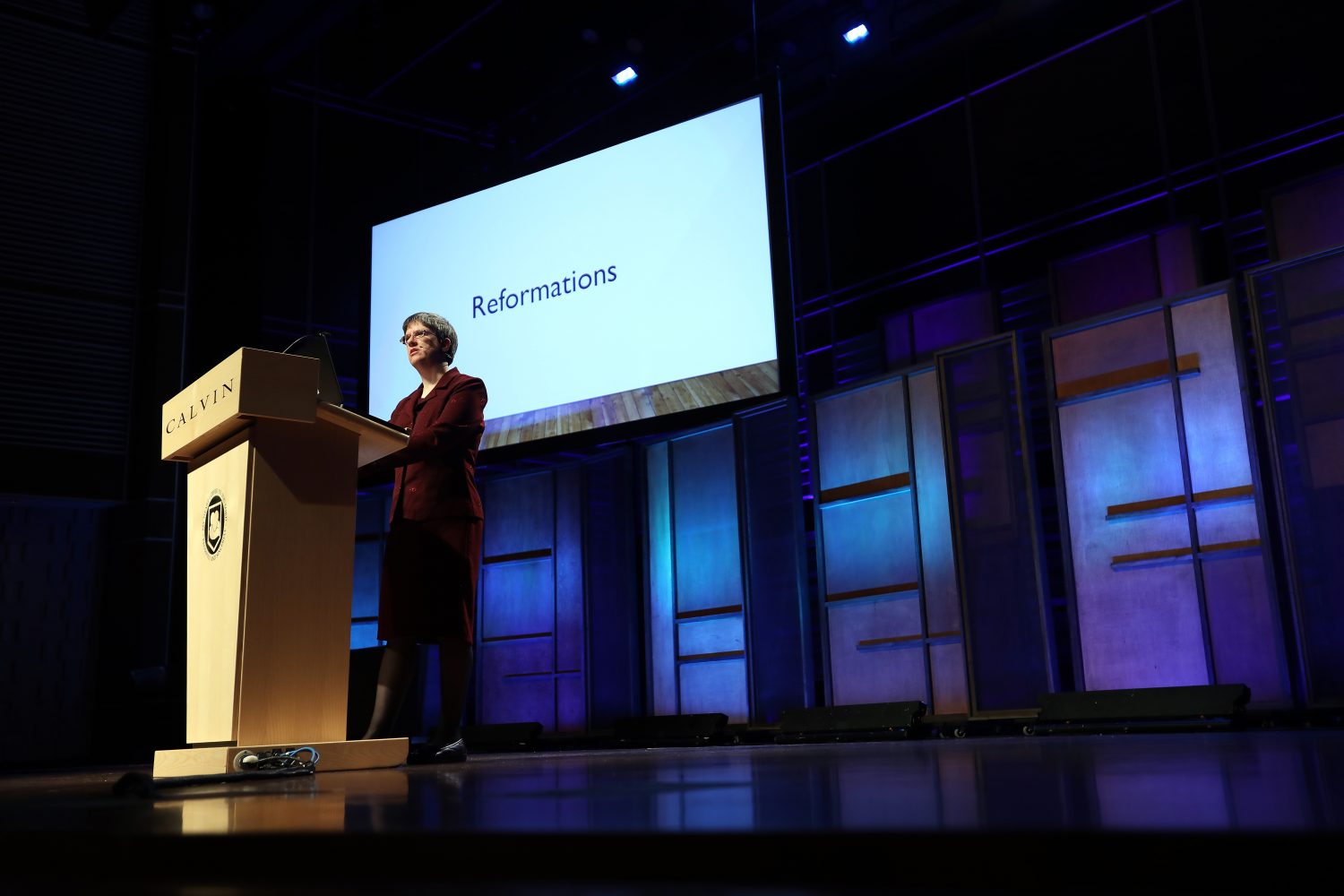Thursday, Jan. 5, Matthew Desmond: “Poverty and Profit in the American City”
Harvard professor and MacArthur “genius grant” recipient Matthew Desmond presented his startling research on rental housing eviction on the second day of the January Series, Thursday, Jan. 5.
Desmond told stories from his years of ethnographic research in Milwaukee, Wisc., following poor families who rent, focusing on eviction and its relationship to poverty.
Researchers have long known of the correlation between housing instability and poverty, but despite this, Desmond found that there was a lack of data on eviction, particularly in the private sector of landlords and rentals. Desmond said that studies of the poor and their housing had largely focused on public housing, which he argues is simply not representative of most of Americans who live below the poverty line.
Desmond described the arduous process of applying for public housing, which in some cities has a waiting list that is “counted in decades, not years.” The more accurate picture of American poverty, he argues, is a single mother and several kids, evicted from their home every few months or years, each home worse than the last.
One eviction can set off a downward spiral of housing problems. Evictions are on public record in Milwaukee, and landlords will usually reject any prospective renter with a prior eviction, making it harder and harder to find housing in the future. Desperation leads the renter to take housing in increasingly worse conditions after an eviction. In these worse environments, the likelihood of another eviction increases, and the next housing situation becomes even more desperate.
Desmond showed how average incomes have flatlined for those with a high school education or less, while over the same period, average asking-rent prices have greatly increased. As a result, many of the families Desmond studied were spending 75 or 80 percent of their income on rent.
Desmond argues that under these conditions, when a family is forced to spend such a high percentage of their income on housing, “eviction is not the result of irresponsibility so much as inevitability.” And the astonishingly high rate of evictions he found backs this up: one in five renters in Milwaukee will be evicted within two years.
From the data he has collected, Desmond makes the case that “eviction is a cause, not just a condition, of poverty.”
A few of the questions posed to Desmond in the Q&A period brought the conversation home. Audience members raised concerns over what they can do about gentrification and rising housing prices here in Grand Rapids.
Grand Rapids mayor Rosalynn Bliss attended the session along with other community members, including police officers.
By Carolyn Muyskens, Local Editor
Wednesday, Jan. 4: Karin Maag, “Why the Reformation Still Matters”
Karin Maag, Calvin history professor and director of the Meeter Center, opened the 30th annual January Series on Wednesday afternoon. This year marks Maag’s 20th year on Calvin’s faculty as well as the 500th year since the beginning of the Reformation.
While the Reformation is usually associated with the “heroic figure” of Martin Luther, Maag said that the movement was much too broad to limit only to him. In fact, Maag recommended talking about multiple “Reformations,” citing the exponential rise in religious diversity that began in the 16th century and still continues today.
Maag first looked at ordinary people and their personal struggles to accept the changes in worship practices that the Reformation brought. From using vernacular languages instead of Latin in worship to the beginning of congregational singing, Maag said that these changes had “a bigger and more immediate impact than any doctrinal controversy” on the average churchgoer.
Maag also explored how common people responded to the “porous and complex confessional reality” that the Reformation began. “The sixteenth century was not a tolerant age,” she said, and contemporary writers often used the language of contagious disease to describe religious opinions they didn’t like.
But despite state churches and religious wars, Maag uncovered many places in which individual people and families would “quietly breach” the national labels. Their “deep desire to find ways to live together as harmoniously as possible” lead to interconfessional marriages, attending weddings and funerals of different traditions and appointing godparents with conflicting beliefs.
Maag offered these examples of individual religious toleration as a model for loving those who disagree with us and seeing them as human. She closed her talk with a recent story from Kenya, in which Muslim bus passengers refused to abandon Christian passengers when the bus was stopped by a radical Islamist group. “Kill us together or leave us alone,” they said, refusing violence as a response to doctrinal difference.
By Josh Parks, Editor-in-Chief
Check back each day in January for updates from the January Series.









